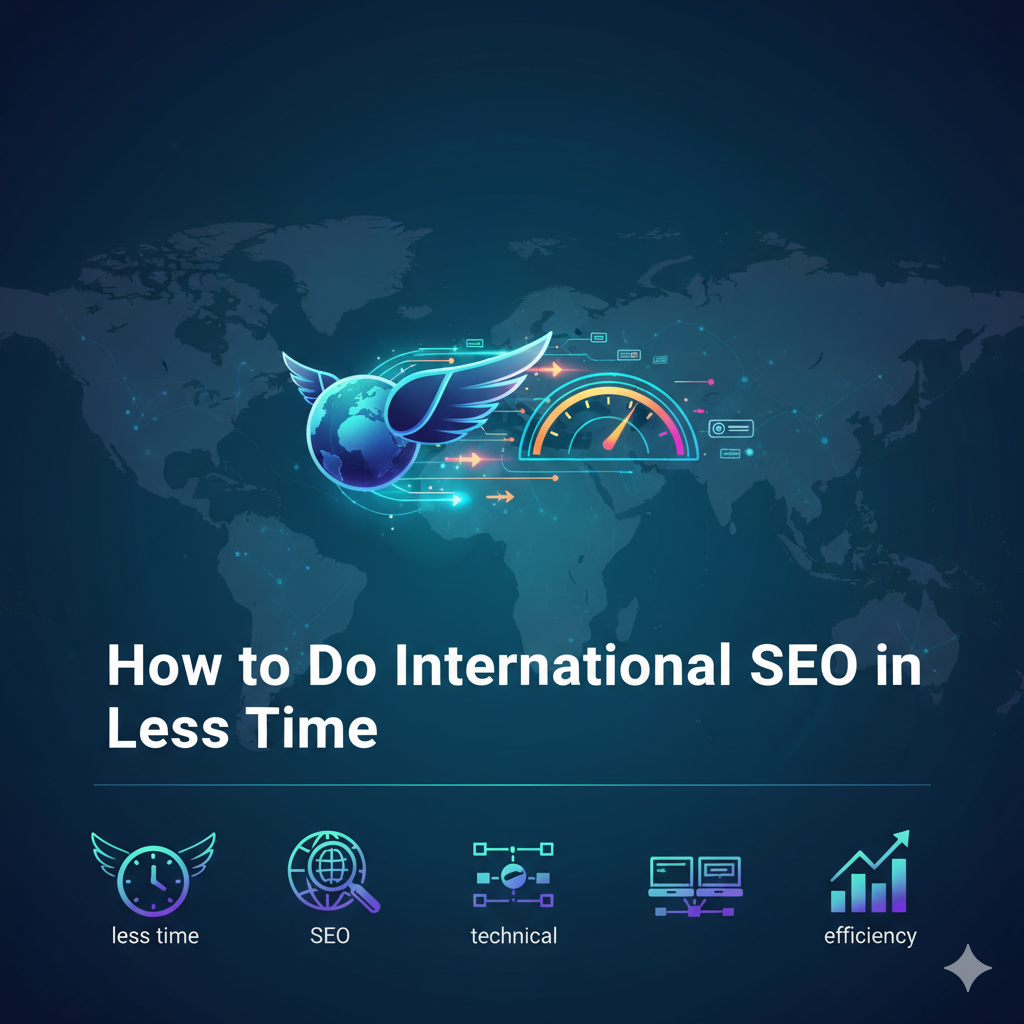- +91 9409789822
- webdigitalwaves@gmail.com
- Vadodara, Gujarat, India

SEO is very important in the website.
We can rank in international regions like USA, UK, Australia by staying in India.
The process of SEO to be followed is On-Page, Off-Page, and Technical SEO.
In this article, you’ll learn how to do international SEO in less time using smart automation tools, structured frameworks, and data-driven strategies. Whether you’re a digital marketer, an agency owner, or a growing brand, these proven methods will help you optimize efficiently and expand globally fast.
Here’s a practical framework to implement international SEO efficiently:
List 3–5 countries you want to reach. Use Google Analytics and Search Console data to find where organic visitors already come from.
In On-Page SEO, the main priority is Meta Title, Meta Description, and URL.
In international regions, where you want to rank, find that country’s keyword and use it in:
Meta Title
Meta Description
URL
Example of keywords:
“Best coffee shop in Ontario”
“Best perfume shop in Melbourne”
By arranging keywords like this, stuffing can be done to improve ranking.
To get listings, create backlinks on high DA PA links of local directories of the specific country.
This helps increase authority and visibility in that region.
In Technical SEO, if you have to check the pages like indexing, crawling, sitemaps, etc.,
then you can do it in Google Search Console.
Implementing international SEO efficiently can deliver measurable results:
50% faster launch time with automation tools.
3x higher organic reach across new countries.
Improved conversion rates through localized user experiences.
Reduced costs by replacing repetitive manual work with automated workflows.
For example, companies that used AI-assisted translation tools like DeepL and automated hreflang management saw a 25–35% increase in global rankings within the first 3 months.
Mastering how to do international SEO in less time is not just about working faster it’s about working smarter. With AI tools, structured frameworks, and localized strategies, even small teams can expand globally in weeks instead of months.
To recap:
Focus on smart keyword localization and automation tools.
Use hreflang tags and optimized site structures.
Combine AI-powered translations with human creativity.
Continuously measure, adjust, and refine.